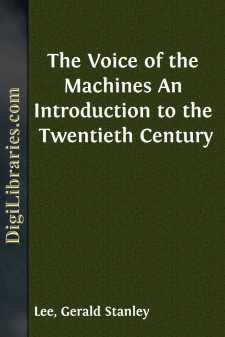Categories
- Antiques & Collectibles 13
- Architecture 36
- Art 48
- Bibles 22
- Biography & Autobiography 813
- Body, Mind & Spirit 142
- Business & Economics 28
- Children's Books 15
- Children's Fiction 12
- Computers 4
- Cooking 94
- Crafts & Hobbies 4
- Drama 346
- Education 46
- Family & Relationships 57
- Fiction 11828
- Games 19
- Gardening 17
- Health & Fitness 34
- History 1377
- House & Home 1
- Humor 147
- Juvenile Fiction 1873
- Juvenile Nonfiction 202
- Language Arts & Disciplines 88
- Law 16
- Literary Collections 686
- Literary Criticism 179
- Mathematics 13
- Medical 41
- Music 40
- Nature 179
- Non-Classifiable 1768
- Performing Arts 7
- Periodicals 1453
- Philosophy 64
- Photography 2
- Poetry 896
- Political Science 203
- Psychology 42
- Reference 154
- Religion 513
- Science 126
- Self-Help 84
- Social Science 81
- Sports & Recreation 34
- Study Aids 3
- Technology & Engineering 59
- Transportation 23
- Travel 463
- True Crime 29
Gerald Stanley Lee
Gerald Stanley Lee (1862–1944) was an American writer, preacher, and lecturer known for his philosophical and visionary works. He is best remembered for his book "Crowds: A Moving-Picture of Democracy" (1913), which examines the impact of mass culture and the collective power of society. Lee's writing often focused on the importance of individual creativity and spirituality in the modern industrial world. Another notable work of his is "The Voice of the Machines" (1906), where he explored the relationship between humanity and technology.
Author's Books:
Sort by:
Dust “I see the ships,” said The Eavesdropper, as he stole round the world to me, “on a dozen sides of the world. I hear them fighting with the sea.” “And what do you see on the ships?” I said. “Figures of men and women—thousands of figures of men and women.” “And what are they doing?” “They are walking fiercely,” he said,—“some of them,—walking fiercely up and down the...
more...
GIST The Crowd is my Hero. The Hero of this book is a hundred million people. I have come to have the feeling—especially in regard to political conventions, that it might not be amiss to put forward some suggestions just now as to how a hundred million people can strike—make themselves more substantial, more important in this country, so that we shall really have in this country in time a hundred...
more...
THE MEN BEHIND THE MACHINES I MACHINES. AS SEEN FROM A MEADOW It would be difficult to find anything in the encyclopedia that would justify the claim that we are about to make, or anything in the dictionary. Even a poem—which is supposed to prove anything with a little of nothing—could hardly be found to prove it; but in this beginning hour of the twentieth century there are not a few of us—for...
more...




